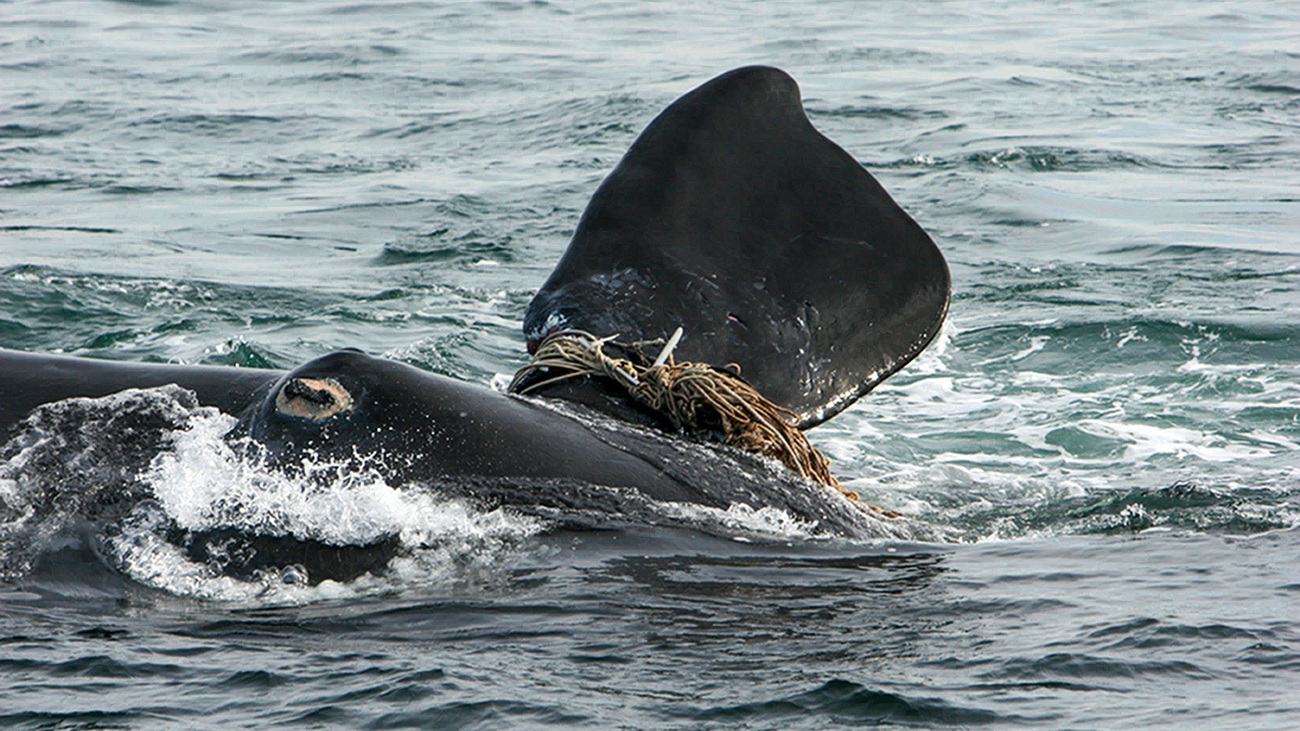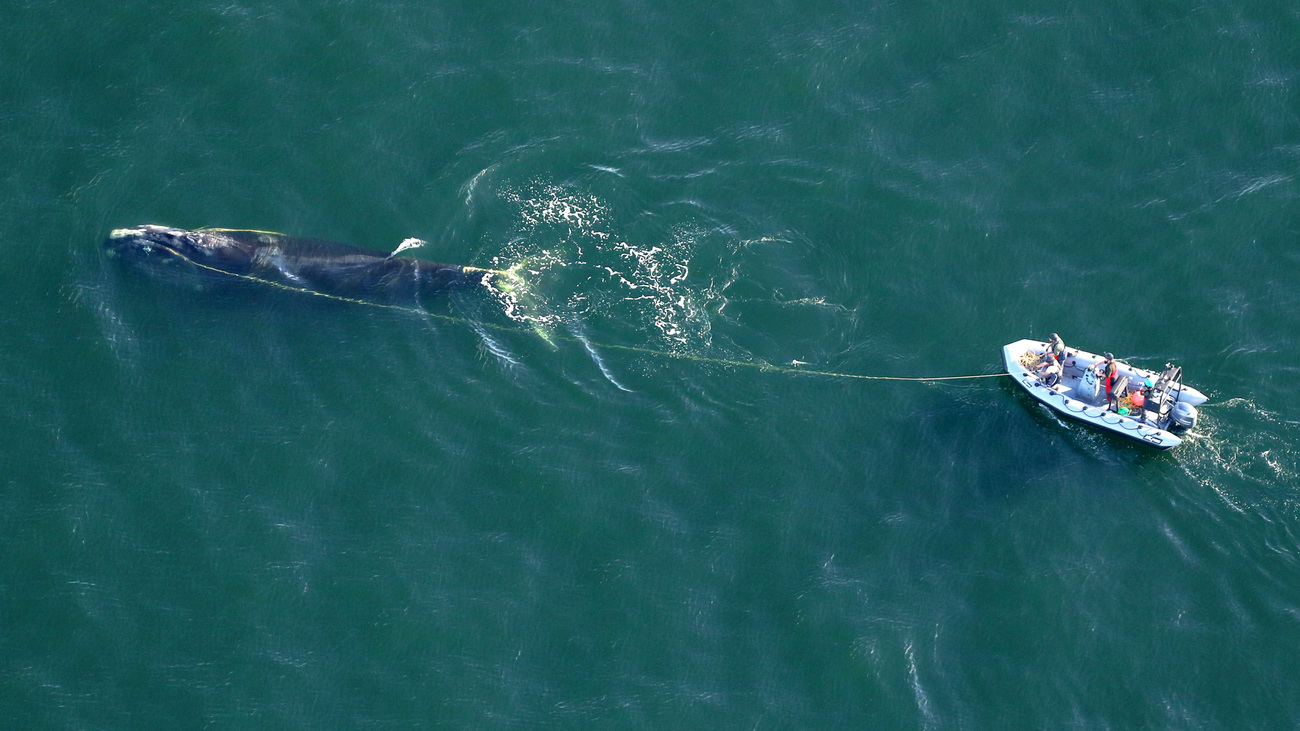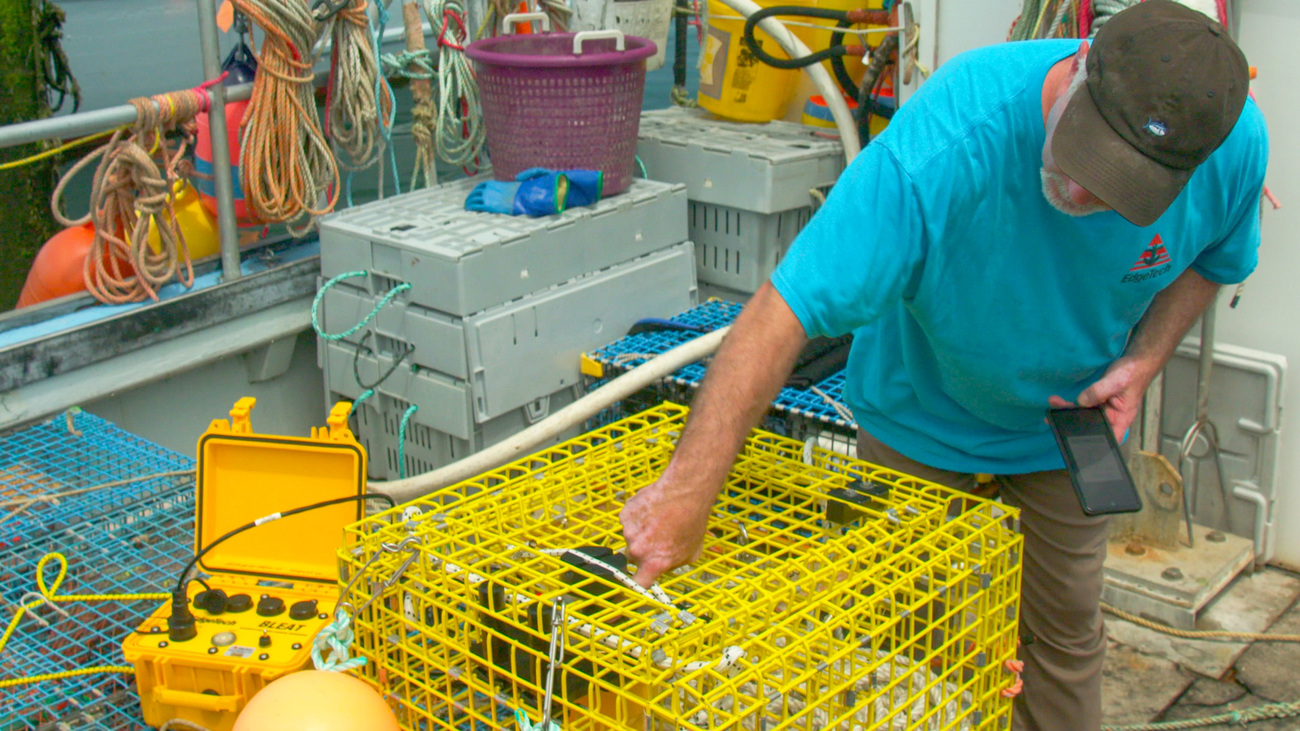Saving the North Atlantic right whale - North America
Don't fail our whaleWhy new fishing gear is crucial for saving whales and fishing incomes
Why new fishing gear is crucial for saving whales and fishing incomes

North Atlantic right whales are one of the most endangered animals in the world. With fewer than 340 remaining in the wild, protecting them from extinction is a top priority for IFAW.
Traditional fishing, lobster, and snow crab gear—with ropes that hang from the ocean’s surface to nets or traps far below—are a threat to their survival in areas where they migrate. The ropes often entangle whales, weighing them down and slowly drowning them.
This gear doesn’t hurt only whales—it also limits the fishers who depend on the sea for their living. The first seasonal closure to protect migrating right whales impacted Massachusetts in 2015. While this closure provided substantial, necessary protection to right whales during migration, fishermen were left on the sidelines.
These increasingly frequent closures come at a significant cost to a portion of the commercial fishing industry that historically accessed these waters to harvest.
New fishing techniques
The good news is that advancements in fishing techniques can save countless whales and other species that are victims of bycatching (animals that fishermen do not set out to catch), which would in turn support fishermen by reopening those closed waters.
One advancement is on-demand fishing gear, an innovative technology that reduces whales’ entanglement risk by removing the vertical buoy line. Since this on-demand gear isn’t attached to a buoy at the water’s surface, it’s lifted to the surface using a different device, such as a pop-up buoy, inflatable lift bag, or buoyant spool.
This equipment removes the primary threat lobster and crab fishing gear poses to whales while keeping fishermen on the water, making a living by accessing fisheries that would otherwise be closed.

A flawed report from Massachusetts
That’s why it is so disappointing to read a short-sighted, flawed report into on-demand fishing gear from the Massachusetts Division of Marine Fisheries.
The report—Estimating the Costs of Using On-Demand Gear in Massachusetts Lobster Fisheries—presents a model for estimating the operational costs of using on-demand fishing gear. It’s an attempt to determine whether using this gear affects profitability.
While it’s a positive step that we are moving past discussions of on-demand gear’s viability and are now discussing affordability, the report’s findings are inherently flawed.
Firstly, the data is incomplete. The report suggests that adopting on-demand gear would result in decreased productivity and revenue. However, the data came from only three hauls conducted by one fishing vessel in 2022. The sample size is far too limited to represent the entire industry, and the data is far too limited to reflect the experience of the many fishermen using this gear.
It also doesn’t capture the high degree of variability in fishing activities, including whether fishing is occurring inshore or offshore, or the actual time taken for hauling various gear types. DMF themselves noted: “Each lobsterman’s fishing performance is unique and a function of many personal matters and business decisions.”
Secondly, the model doesn’t reflect the needs of today’s fisheries. The report shows a significant decrease in lobster landings and revenue if all Massachusetts lobstermen made a complete transition to using only on-demand gear. But this scenario of a full transition does not align with the current state and federal regulatory framework. Nor does it reflect the interests of fishermen, who look to this gear as a tool to safely access restricted areas.
Any model looking to determine profitability should factor in the economic gains from being able to fish in otherwise closed fisheries. This report does not do that.
What Massachusetts gets right
In many ways, Massachusetts is a leader in right whale protection and has taken progressive actions throughout the years.
On-demand gear development has also been at the forefront in Massachusetts, where IFAW, pioneering fishermen, gear manufacturers, scientists, the NOAA Northeast Fisheries Science Center, and other entities have collaborated to find ways for commercial fishermen and right whales to co-exist in closed areas.
This year, we’ve already seen great progress. Recently, thirty fishermen completed exploratory work testing on-demand gear in closed areas. Through collaboration with the Massachusetts Division of Marine Fisheries, five of these fishers harvested in previously closed state waters.

Why innovative thinking is crucial for Massachusetts fishing
In Massachusetts, a full-time commercial fishery has been regulated to nearly part-time through closures, without any offset given to those who traditionally harvested in the affected grounds. A small portion of the commercial fleet is substantially affected and wants to re-enter grounds closed for right whale protection, but those individuals are important.
On-demand methods present an outstanding means for Massachusetts to continue to lead the way in right whale conservation without limiting the opportunities available to the commercial fishing fleet.
IFAW supports efforts to assess the cost of on-demand gear. Adoption of this gear will be an expensive endeavour requiring collaboration and shared responsibility—but the stakes are too high for both the North Atlantic right whale and for Massachusetts fishermen to promote a misleading report instead of working together to produce solutions.
The solutions we need for the future
Finding solutions that ensure the coexistence of animals and people is the only way forward.
Commissioning short-sighted reports with limited data that does not reflect the regulatory environment or consider economic gains from accessing otherwise closed fisheries does more harm than good. This report undermines the important efforts fishermen are making to help protect the North Atlantic right whale from extinction.
Fortunately, Massachusetts fishery management has historically been diligent with requiring detailed data from harvesters. This forward-thinking management approach provides the ideal landscape for actual analysis of real impacts and potential opportunities, but there is no doubt the industry needs financial support to participate in these innovative efforts.
We implore Massachusetts to identify those fishermen specifically affected by closures and find ways to be supportive and creative to increase their opportunities.
Related content
Every problem has a solution, every solution needs support.
The problems we face are urgent, complicated and resistant to change. Real solutions demand creativity, hard work and involvement from people like you.